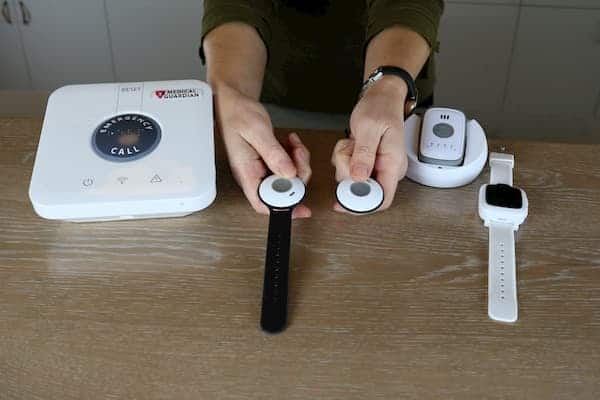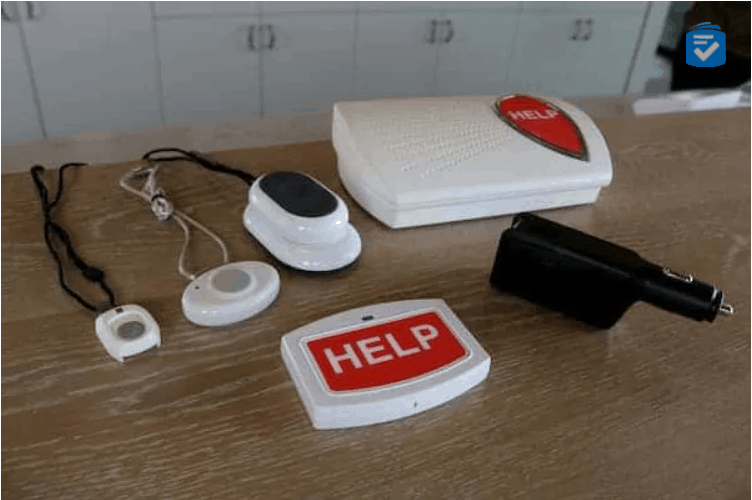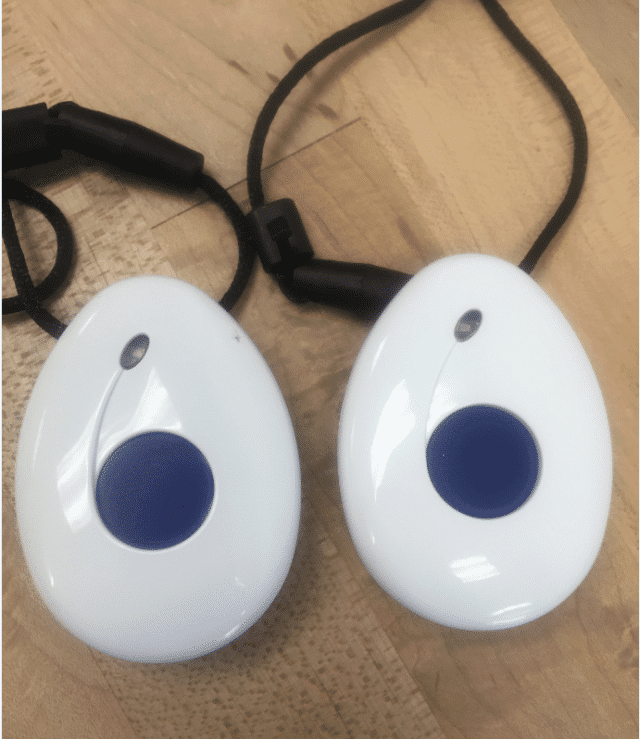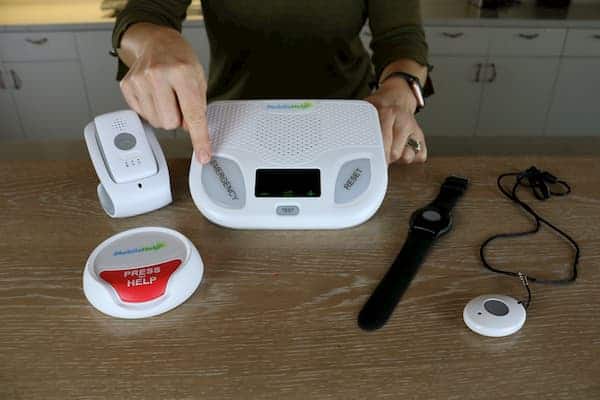Comparing the Best Medical Alerts
There are dozens of medical alert companies to choose from, and each one offers many devices and plans. It can be difficult to know which system is right for you, but we’ve done the hard work for you.

At their core, all medical alert systems share a common goal: keep people safe in their homes or on the go. Through a combination of help buttons, speakerphones, and other features, they provide a simple means for you to communicate with both first responders and your loved ones. You’ll find, however, that medical alert providers differ in devices, pricing, and overall performance.
Below is what you should consider when comparing medical alert providers.
Did You Know: Are you new to the world of medical alert systems? Take a look at my comprehensive guide to medical alerts to learn more about this lifesaving technology.

The Best Medical Alert Providers Compared
| Most Affordable System | Long-Term Contracts | Fall Detection | GPS Device | Additional Help Buttons | |
|---|---|---|---|---|---|
| Medical Guardian | $29.95 per month | Not required | $10 per month | $39.95 per month | $10 per month |
| Bay Alarm Medical | $24.95 per month | Not required | $10 per month | $29.95 per month | $35 one-time charge |
| ADT Health | $29.95 per month | Not required | $10 per month | $39.99 per month | $14.99 one-time charge |
| Lifeline | $29.95 per month | Not required | $10 per month | $49.95 per month | Not available |
| Aloe Care Health | $24.99 per month | Not required | Included with most systems | $24.99 per month | Not available |
| Medical Alert | $19.95 per month | Not required | $10 per month | $37.95 per month | Not available |
| LifeFone | $29.95 per month | Not required | $10 per month | $39.95 per month | $39.95 one-time charge |
| Lively | $24.95 per month | Not required | $20 per month | $24.95 per month | Not Available |
What to Look for in a Medical Alert
Despite their similar functionality, there are some key aspects to look for when you’re purchasing a medical alert system. They may not all pertain to you, but it’s important to know what features are available and how much they cost.
Professional Monitoring
Behind every medical alert system worth its salt is a team of highly trained professionals. A medical alert system is a communication tool, after all, so you’ll want the people answering your calls to be skilled at navigating potentially life-threatening scenarios.
When you’re considering a medical alert provider, look for companies that own their own monitoring centers rather than hiring third parties. If a company boasts certifications from the Monitoring Association, you know you’ll be in the hands of trained professionals.

Fall Detection
The National Council on Aging reports that falls are the No. 1 cause of fatal injuries among seniors in the United States. Purchasing a medical alert system with fall detection may reduce your fear of a fall, leaving you feeling safer at home and outside. Fall detection typically costs an extra $10 per month, but its benefits cannot be overstated.
Pricing and Contracts
We all want the most bang for our buck, but pricing can be a bit tricky when it comes to medical alert systems. Rather than requiring you to purchase your system, most companies lease their equipment for a monthly fee that includes both the equipment and monitoring costs. Some companies charge equipment fees and activation fees, and charge extra for accessories.
You should never lock into a long-term contract with a medical alert provider. Most companies offer discounts for annual (as opposed to monthly) payments, but the best providers will not require you to sign any sort of long-term deal.
GPS
Traditional medical alerts offered protection only in the home, but, in recent years, many companies have introduced mobile devices. Operating on a cellular signal, these devices can be taken just about anywhere, and their GPS technology allows monitoring agents to track your location and send help to the right place.
Spouse Monitoring
Even for people who live with a spouse or roommate, a medical alert system can offer some much-needed protection. I appreciate it when medical alert companies allow you to purchase additional buttons for the same system. Why bother purchasing a second system when you can just augment a single one?
Did You Know: Are you looking to purchase a medical alert system for multiple people? Check out my rundown of the best medical alert systems for couples and roommates.
Caregiver Features
Many medical alert companies now offer companion smartphone apps that allow your loved ones to keep track of your system’s status. Aloe Care Health’s systems, for example, can track battery life, location, and activity levels, and even make direct calls to your device from a smartphone. Caregiver features like these can help your loved ones keep better track of your care plan.
In-Depth Comparisons of Medical Alert Companies

In addition to our detailed medical alert reviews, we’ve also compiled in-depth comparisons outlining how popular companies stack up in terms of features, performance, and pricing.
- Alert1 vs. Life Alert
- Life Alert vs. Bay Alarm Medical
- Life Alert vs. Medical Alert
- Life Alert vs. Lifeline
- Life Alert vs. MobileHelp
- Medical Guardian vs. Bay Alarm Medical
- Medical Guardian vs. Life Alert
- Medical Guardian vs. LifeFone
- Medical Guardian vs. Medical Care Alert
- MobileHelp vs. Bay Alarm Medical
- MobileHelp vs. LifeStation
- MobileHelp vs. Medical Guardian

